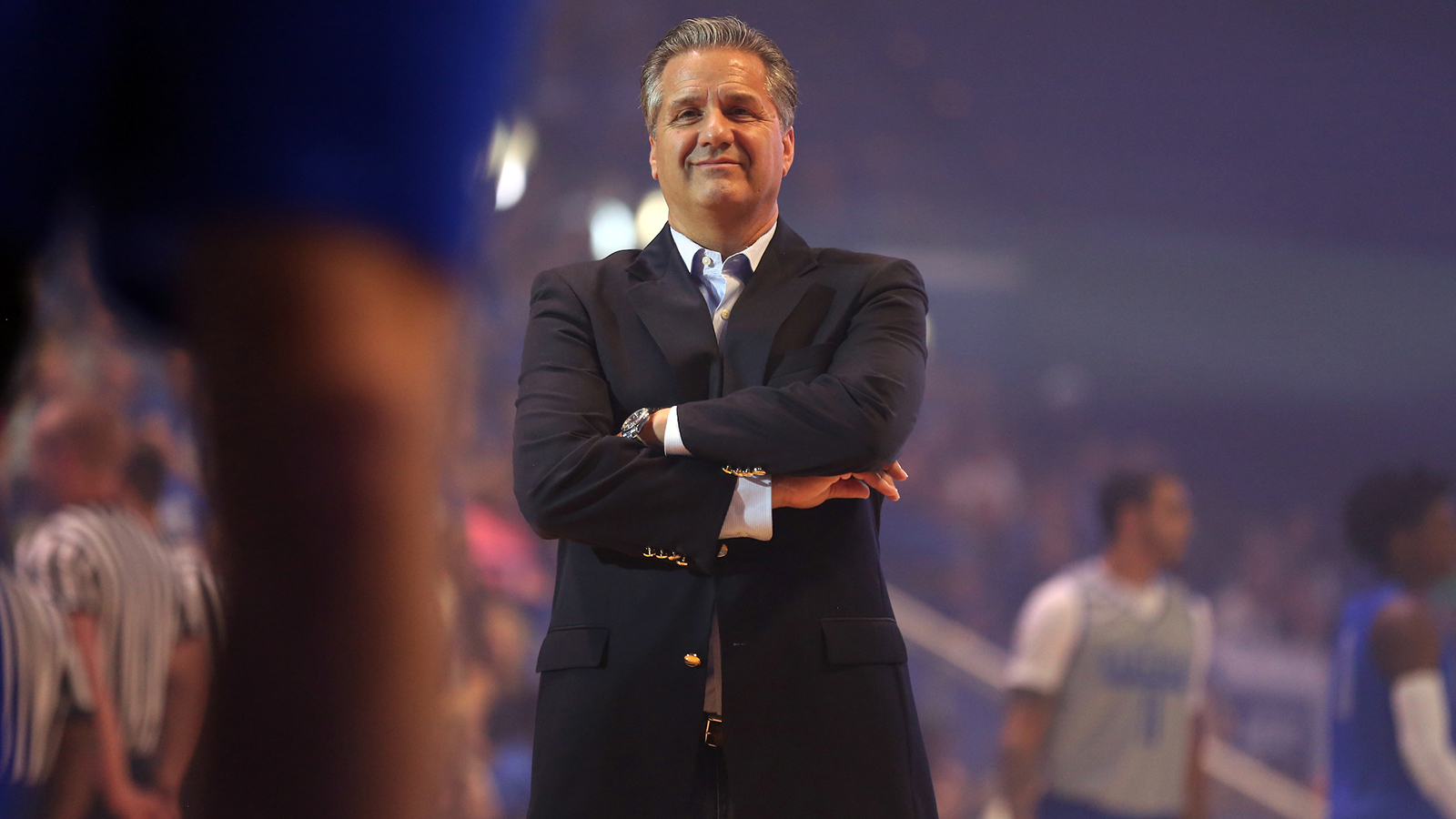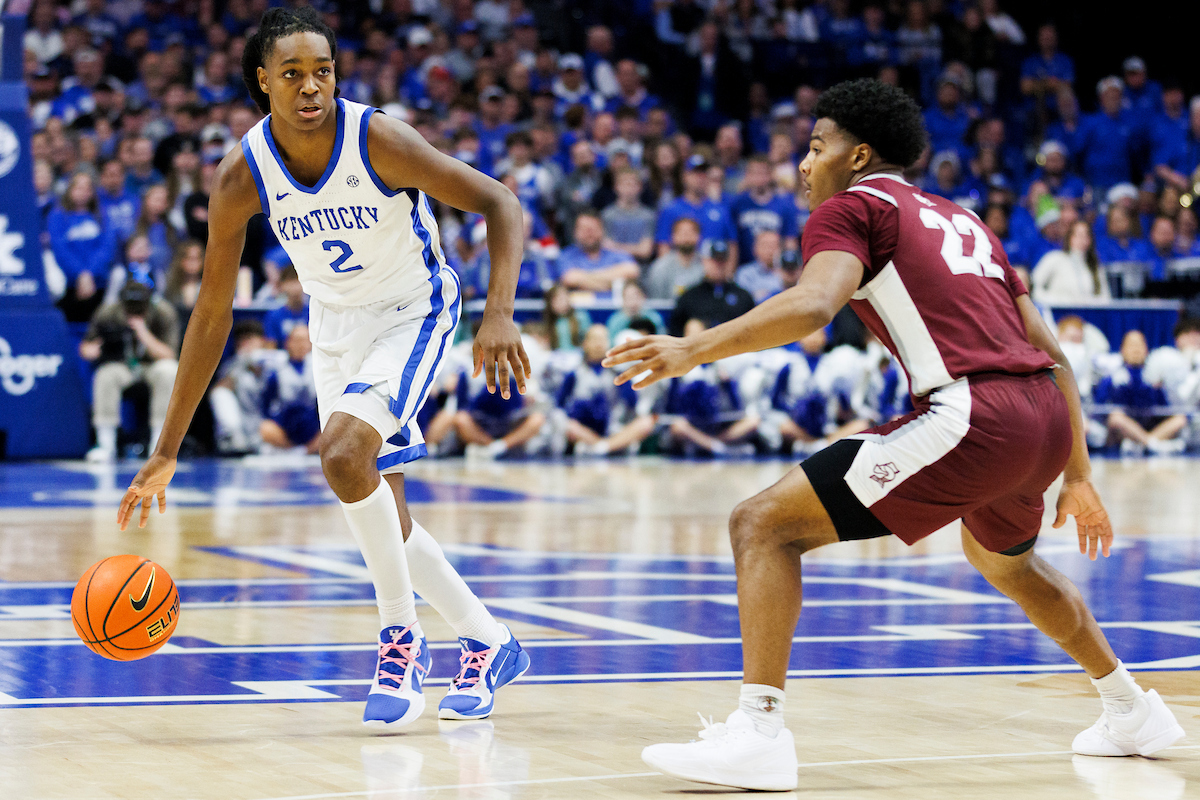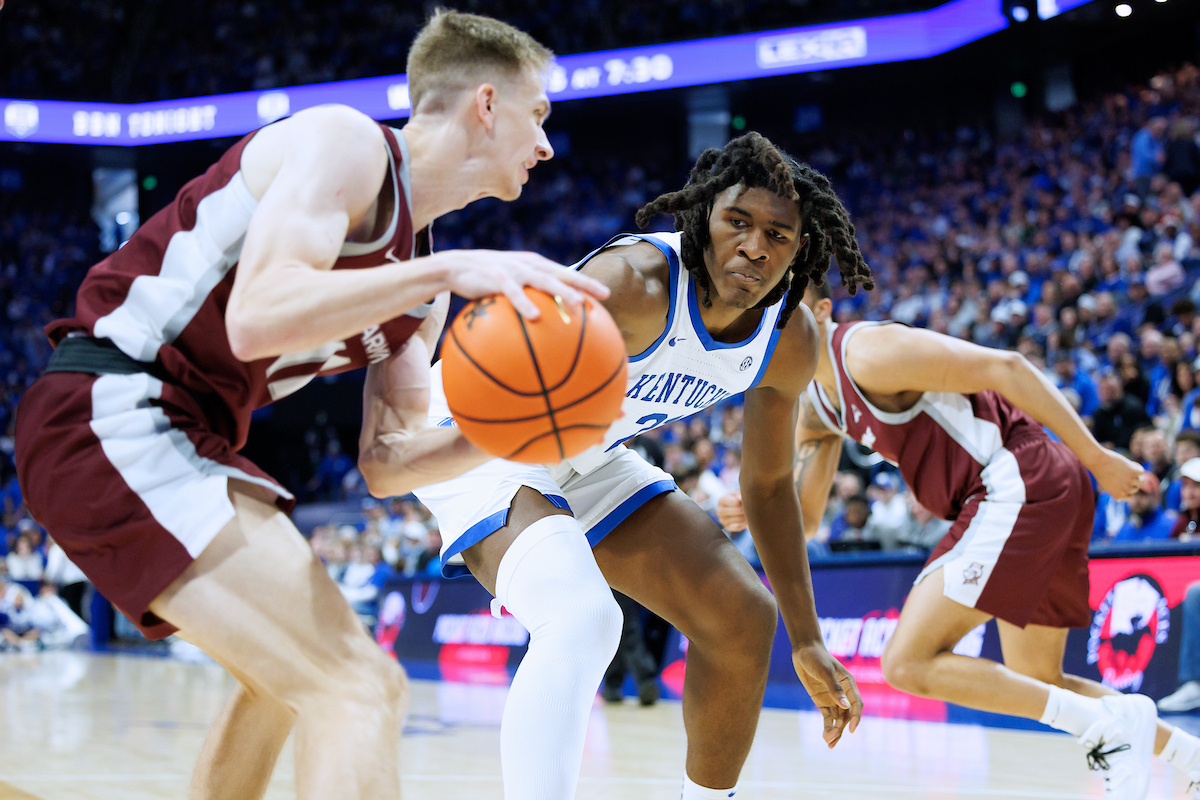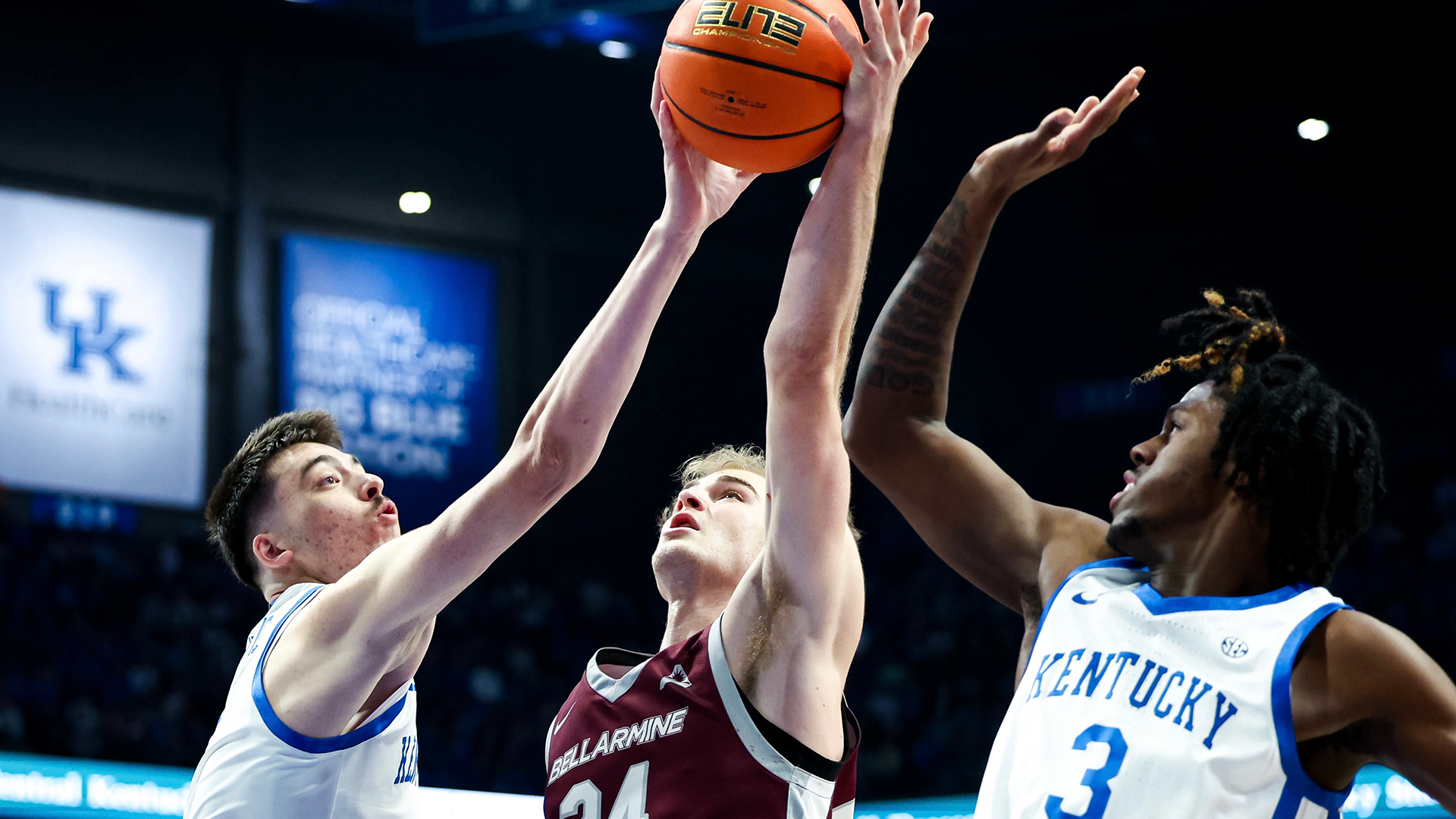
SEC Teleconference: ‘You Could Lose Six or Seven and Win the League’
Kentucky head coach John Calipari joined the first Southeastern Conference coaches’ teleconference of the season Monday morning, and he talked about Texas A&M (11-4, 0-3 SEC), playing physically, PJ Washington’s health and getting his team to push itself everyday in practice.
Coach John Calipari
Opening statement …
“Texas A&M has had injuries and illness, so everyone in our league knows how good they are. Their guards were out for a while, big man (Robert Williams) was out this last game with the flu. Robert is one of the best players in our league, voted, I believe, player of the year in the preseason. My guess is they’ll all be back, so it’ll be a different kind of game. (Texas A&M head coach) Billy (Kennedy) has done a great job.
“I mean, the whole league right now. When you look at our league, you’re talking eight, nine, 10 teams. Really, all 14 (teams). Teams that we thought would struggle are leading our league. Teams that you thought would be in the middle are up. Teams that have had issues as far as injuries and everything have taken a little step back, but they’ll be back. So, this is a six-, seven-loss league – you could lose six or seven (games) and win the league. That’s what it looks like to me.”
On LSU freshman point guard Tremont Waters …
“If there’s a player that before the game you have to talk about, ‘OK, we’ve got to make sure we’re watching what he’s doing and we may have to do some things that we’ve done differently.’ That means he has an impact on a game. Tremont does that. At any point he can shoot a deep 3. They’ve given him leeway. I mean, he’s got room to play.
“But their big guy has also gotten better. I mean, now all of a sudden they can throw it in there, and the last game that they did against Texas A&M they were throwing him the ball in there.
“Their other players are playing off. They’ve got good kids and good players. They’re opening up the court. Another team that makes a lot of 3s.”
On bringing around more physical play from his team …
“That’s how A&M plays anyway. They play a physical game. They play a lot of high-low. They’re going to try to jam it over the top, they’re going to try to seal you, similar to what happened after PJ came out of the game (when) Tennessee just threw us around.
“The way you do it is, first of all you show it on tape so they can accept it’s what happened. Then you just – it’s a process, day-to-day, and you just keep working on it. You get guys to accept I’ve got to change. I tried to tell them yesterday, ‘In most cases in this sport, for guys to advance in this sport you’ve got to fight. I’ve seen guys who have advanced with less skills and less this, less that, yet they fought and had 15-year careers. If you don’t fight, you’re not making it because it’s too competitive.’
“Again, fighting doesn’t mean fist fighting. It means fight for position. It means being tough and knowing, I’m not fading away. I’m either getting fouled or making a basket here. It means I’m moving my feet to offensive rebound. I’m not pushing in the back. It means the shot goes up, I’m not afraid of contact, I’m going to create the contact. That’s the fight. I’m playing before my man catches the ball. I’m alert on the weakside because I’m tough and I’m not thinking about my missed shots, I’m not thinking about me, I’m thinking about what’s my job. That is all a mentality of toughness, mental toughness, physical toughness, and when you got a bunch of young guys it’s the last piece of this. It’s not skills. It becomes, will you battle?”
On Washington’s health status …
“No, it was cramps. Hopefully, we’ll watch today, but my point being, that’s as hard as he’s played since he’s been here and his body may have revolted. Like, what are you doing? The heck is going on here? Trying to get them to understand, that’s why you practice and you push yourself to the limits. You push your body, you make yourself uncomfortable, you beat workouts, they don’t beat you, you’re not looking for shortcuts. It’s all the stuff that we continue to talk about when you’re in the process. The problem is, we don’t have enough veterans that can go back to the lodge or in the hotel and talk about it because we’re all going through the same thing.”
On if he’s worried about his team getting that message …
“No, it’s my job to just continue day-to-day, stay in the moment. I’m not worried about tomorrow, I’m worried about today’s practice and getting these guys in the right frame of mind. If we’re not ready for the physical battle, we move on to the next game. Let’s hope we’re ready for the next one.
“At some point, to survive you fight or you keep dying. Here’s the great thing: I can’t fight for you. There’s a loose ball, ‘I tried.’ ‘Well, he’s trying harder. You either get it or he gets it.’ What, is there going to be an alibi? ‘Well, he takes out this guy when he misses a shot. He doesn’t take out that guy.’ Well, you can hear all that or you can say, ‘It was me and him and he got the ball.’
“Again, tape work is important for these guys. The first step to changing is looking at it and be self-evaluated and say, ‘I gotta change.’ As soon as that happens, you’re good. If they’re hearing the alibis and they’re believing it, or someone is trying to talk to them in any other sense other than change – most of the stuff is mental and it’s how they’ve thought. It’s the thoughts they have and if I don’t feel like doing something I’m done. The other good one is, ‘I don’t feel good so we can lose.’ What? Well, no, you just don’t play. What do you mean we can lose?
“The thing that disappointed me with Tennessee was, it was a tie game. It was like 57-57. We had guys acting like the game was over. Like, wait a minute, fight to win the game. Fight to keep it close. They’re going to make shots. You’re going to have to fight. You’re going to have to come up with balls. That’s something that they’re learning.
“Like I said, I try not to go game-by-game. It’s overall. When PJ went down and Wenyen (Gabriel) had fouled out it was going to be hard from there on.”



